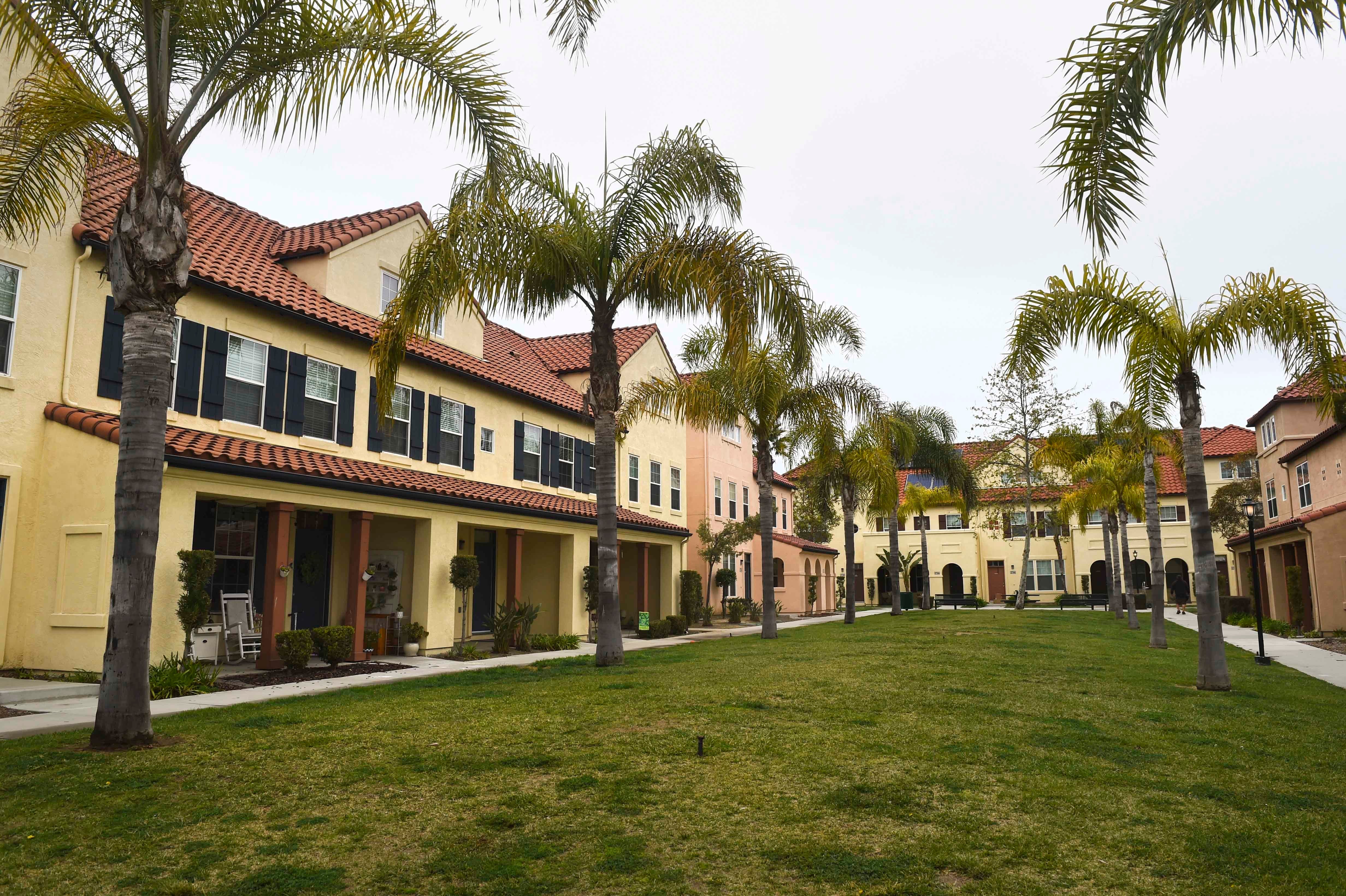A California judge has dealt a blow to a Marine Corps family’s hopes of receiving more than $2 million in damages related to mold in their home in military privatized housing.
The $500,000 awarded to Staff Sgt. Matthew Charvat and each of his three family members for past pain and suffering and emotional distress was “excessive,” stated San Diego Superior Court Judge Randa Trapp in her Dec. 16 notice of ruling on the case.
The evidence presented in the case didn’t support the jury’s award of $2 million, she stated, and ordered a new trial on the issues of damages for past pain and suffering and emotional distress.
Trapp held a hearing Dec. 6 to consider the request for a new trial by the defendants, San Diego Family Housing and Lincoln Military Property Management. A trial date hasn’t been set, but a hearing on another motion is scheduled for March 20.
Lincoln Military Housing had no comment on the case.
The family disagrees with the ruling and plans to file an appeal, said their attorney, Matt Poelstra.
“The family is disappointed, frustrated and confused that a single judge can overturn the decision by a jury who determined that $500,000 [for each family member] was fair and appropriate for the pain and suffering the family endured while living in Lincoln housing,” he said.
The jury in San Diego Superior Court reached the verdict Sept. 5, following a trial that lasted about 3 1/2 weeks. They awarded the Charvat family the $2 million, plus an additional $45,235 for expenses, including medical bills for three of the family members, rent, property damage, moving expenses and other out-of-pocket expenses.
Trapp stated in her ruling that a judge is not permitted to substitute her judgment for that of the jury on the question of damages unless it appears from the record the jury verdict was improper.
The Charvat case is the largest known verdict related to alleged mold contamination in military housing. In 2016, a Marine family in Norfolk was awarded $350,000 in a mold-related lawsuit, also against a subsidiary of Lincoln Military Housing. A number of other cases are pending involving mold in military privatized family housing owned and managed by various companies, including several that have been filed by families since the jury award in the Charvat case.
Issues have been raised by numerous military families over the past year about problems with mold, water leaks, chipping lead based paint, pest and rodent infestations, and difficulty in getting action from their privatized housing landlords. Military officials and company officials have vowed publicly to immediately fix problems and set permanent fixes in motion.
RELATED

Three members of the Charvat family — the wife and two children — were awarded medical expenses totaling $4,546.46, the judge noted, “yet all four family members were awarded $500,000 each for past pain/suffering and past emotional distress.
“The evidence presented does not support such a high amount for what appears to be temporary nasal symptoms, insomnia and irritability, breathing difficulties, tiredness and Mrs. Charvat feeling like she lost a year,” the judge wrote. She stated that the minimal medical treatment and temporary nature of the symptoms, diagnosed as common illnesses such as upper respiratory infections, nasal obstruction and/or rhinitis, and resolving of the issues after they left the home, didn’t support the jury award of $500,000 for each family member.
Charvat, his wife and two children alleged that the privatized housing companies were negligent in addressing a number of problems in their residence in Gateway Village in San Diego, including “visible microbial growth and contamination,” water damage, elevated levels of moisture inside the home, deteriorated and crumbling drywall, defective appliances, and a “horrible, musty odor throughout the interior living spaces.”
The family moved into their home on April 29, 2015. They began feeling symptoms in January, 2016, and moved out on April 1, 2016.
The Charvats alleged the conditions of their house caused sickness in all the family members, with a wide range of symptoms such as congestion, vomiting, diarrhea, fatigue, itchy skin, tightness in the chest, dizziness, excessive headaches, wheezing and other problems. They sought medical care from multiple doctors.
Although some of the family’s health problems lingered for a few months after moving out, they noticed a significant improvement after leaving. Now that they’ve been out of the property for more than three years, their health problems have resolved, Poelstra said.
“It”s unfortunate that the Charvat family will need to push through a retrial, especially when it was awarded by a jury of peers,” said Darlena Brown, founder and president of the Military Housing Advocacy Network. "That said, the retrial is due to the amount awarded, not to the validity of the case. The case is founded and the family suffered.
“Lincoln Military has been proven to be negligent as well other privatized housing contractors as families make the decision to pursue litigation. They had a responsibility to take care of military members and their families. The evidence is overwhelming. They have failed them.”
Karen has covered military families, quality of life and consumer issues for Military Times for more than 30 years, and is co-author of a chapter on media coverage of military families in the book "A Battle Plan for Supporting Military Families." She previously worked for newspapers in Guam, Norfolk, Jacksonville, Fla., and Athens, Ga.





